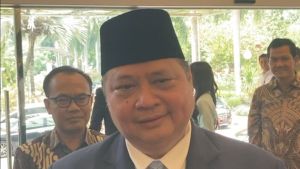JAKARTA - The National Police Chief Gen. Pol Listyo Sigit is currently being tested with a number of cases of his subordinates. Recently, it was alleged that police officers were backing a coal mining company with the initials suspected of being PT BG in South Sumatra.
Responding to this issue, Trisakti University Law Expert Abdul Fickar assessed that if there is a close relationship between the National Police and entrepreneurs or coal mining companies, there is the potential for abuse of authority.
In addition, according to him, it can have a negative impact on the practices of corruption, collusion and nepotism (KKN). So he suggested that there should be administrative and criminal sanctions.
"If it is true, then the person has the potential to commit KKN, this requires action from the leadership. There should even be a mechanism that regulates administrative punishment. If the evidence is sufficient, it can be brought to the criminal realm," Fickar told reporters, Tuesday, July 19, 2022.
Because according to him, the closeness between police officers and businessmen or mining companies is very unethical and can affect work if there is an economic benefit.
"It is unethical, if it affects the work of a friend, he will get economic benefits. It has the potential to create abuse of authority," he said.
In line with the Professor of Law at Al-Azhar University, Indonesia, Prof. Suparji Ahmad, said that the phenomenon of the proximity of police officers to businessmen could disrupt the integrity and authority of the judiciary in ensuring public justice.
"Law enforcement officers as state instruments must be independent, independent, professional and with integrity so that there is no conflict of interest which is allegedly able to foster crime in the name of power or authority possessed by law enforcement officials," said Suparji.
According to him, the consistency and firmness of the law enforcement apparatus is the key to the independence of the judiciary. He said that this attitude was important to ensure the continuity of the logic of justice that was built by the community based on the decisions issued by the court.
In addition, he said, an objective process is also needed in every stages of law enforcement.
"Objectivity in law enforcement can only be carried out by professional apparatus with high moral integrity," he said.
Suparji said that the reforms were not intended to limit or even reduce the authority and independence of judges. However, he continued, what is meant is reforms to strengthen institutions (institutional capacity building) to present a law enforcement institution that truly serves the truth and legal justice, without being influenced by any form of external intervention, including monetary and political motives.
"Not accusing, but it is a consequence of a mutually beneficial and interdependent relationship that will lead to a legal conspiracy that can have an impact on the application of the law that is sharp downwards and blunt upwards," he said.
The English, Chinese, Japanese, Arabic, and French versions are automatically generated by the AI. So there may still be inaccuracies in translating, please always see Indonesian as our main language. (system supported by DigitalSiber.id)













